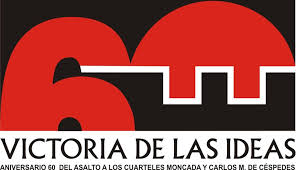This has been the feeling expressed by many fellow countryman, labor and student groups, when in a popular debate on the Draft Guidelines for the Economic and Social Policy- that concluded at the end of Febreruary- , when they gave their view, ideas, suggestions and concerns about the information compiled in the document with view to its analysis and approval at the Sixth Communist Party Congress in April.
“This country has had to restructure the basis of support of its economy and production on three occasions,” the expert recalled when referring to: the early 60’s, after breaking-off with the United States, when a reorientation towards the socialist system was needed; 1972, when we joined the CAME (Council for Mutual Economic Assistance), in which we institutionalized our trade relationships in that system; and the so-called special period from 1990, after the collapse of socialism in Europe.
Currently, Cuban society is immerse in radical changes aimed at updating its economic model, which presupposes boosting the creation of incomes from exports of goods and services, as well as to redesign the model of farm management in order to boost agricultural production, mainly its potential for import substitution.
Also the restructuring of the employment and wage system is being analyzed for promoting labor production, increasing efficiency of health services and education without affecting their quality, and improving institutionalism in terms of implementing a structure of organizations of State more efficient and effective.
Strengthening of planning as the main way of managing the economy and as an instrument of conciliation for business regional and national interests is also a priority.
Implementation of the approved budget and plans in each territory, organization or entity is sacred everywhere, and they must be adjusted both to real needs and available resources; hence the importance to discuss a breakdown of figures or commitments in each factory or production and services facility with the workers, who will play, all in all, the main role.
With the aim of forcing the socialist companies to be efficient, there will no longer be subsidies of losses by the state; so power will be longer no centralized, and only executives will have the control of the assigned resources, which are created by state companies.
“What is the difference between a socialist company and a capitalist company?” , wondered Dr. in Economic Sciences and National Award winner in his specialty, Joaquín Infante in recent statements to the Cuban press. Then he answered himself:
“The two of them should be profitable and self-financing; but in the case of capitalist companies, their owners pocket the wealth, while in the case of the socialist companies, the profits turn into the heritage of the country and the people- he emphasized- although state entities should recognize that in these times of new changes more autonomy is required in order to encourage their workers for them to notice that their incomes are related to their production results.
Honesty, there are still many deficiencies to overcome, due to the lack of consistency, organization and planning existing in some entities or branches of the economy like agriculture as well as, or from not totally understanding that Socialism means equality of rights and opportunities for all citizens, but not egalitarianism.
So we must change our mind according to the current times the country and the rest of the world is living, since it is the moment to end the excess of free services and subsidies by the state, as well as giving corresponding value to honest work, as the main source of incomes.
Also, as expressed by the Cuban President Raul Castro on December 18th: “One of the most difficult barriers to overcome in an effort to create a different vision (…) is the lack of an economic culture on the part of the population, including not a few of executives, who show much ignorance on the subject, when facing daily problems by taking or suggesting decisions without assessing their possible effects and costs, or if there are resources drawn within the plan and budget for this purpose.
“I am not saying anything new when affirming that improvisation, in general, and mainly in the economy, leads to certain failure, although its aim is to achieve good results,” noted Raul.
Translated by: Silke Paez Carr




